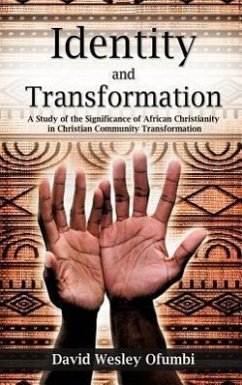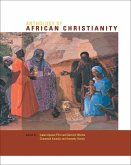David Ofumbi is convinced biblically that, Christian faith covers the entire realm of human existence. There is no dichotomy between private life and public life, or spiritual life and secular life, or an individual and a community. In fact, the whole of human life is the visible expression of the invisible God. Therefore, respective indigenous cultures and the gospel must engage and impact each other. On the one hand, Christians in respective indigenous cultures engage and adapt the gospel to the deep-level meaning and the surface-level forms of their cultures; on the other hand, the gospel transforms respective cultures continuously. African understanding and practices of Christian faith ("Africa Christianity") in this respect is both the outcome of the reciprocal impact between respective indigenous cultures and the gospel and the basis of authentic Christian response to human needs ("Christian Community Transformation"). In the first two chapters, he identifies and discusses briefly the challenges and hopes that characterize local communities in East Africa. He also defines and discusses the phrases "African Christianity" and "Christian Community Transformation". David particularly highlights that the impact of African understandings and practices of Christianity on "Christian Community Transformation" strive: (1) to instill self-confidence in native peoples by enabling them to recover and reassert their true human identities, to restore their true self-dignity, and to build just relationships; (2) to encourage the development and the use of local resources; (3) to bolster robust and enabling faith community structures and proactive responses compatible with the African Christian/ human ethos; and (4) to galvanize global relevance and impact. David Ofumbi is the team leader of Leadership Development Initiative Africa (Leadia), an indigenous leadership development ministry based in Kampala, Uganda. Leadia envisions a community of competent Christian leaders transforming ordinary people into effective followers of Christ courageously transforming Africa. He is currently pursuing post graduate studies focusing on the reciprocal influence between followership and leadership.
Hinweis: Dieser Artikel kann nur an eine deutsche Lieferadresse ausgeliefert werden.
Hinweis: Dieser Artikel kann nur an eine deutsche Lieferadresse ausgeliefert werden.








